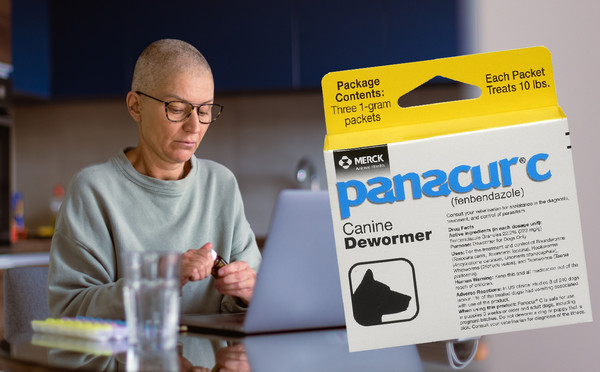Among cancer patients who use complementary and alternative medicine (CAM) outside of mainstream healthcare, 16 percent said they have taken fenbendazole, an anthelmintic used against parasites in animals, a study found.
Professor Kim Jung-sun of hemato-oncology at the Chungnam National University Sejong Hospital released the study's results on the status of CAM therapies, including fenbendazole for cancer patients and measures to manage them at a cancer forum on Friday.

The research team surveyed several groups of cancer patients to identify the use of CAM therapies.
The poll was on 221 members of nine cancer patient groups, including those with renal cancer and multiple myeloma.
About 78 percent, or 173 patients, said that they used CAM. Of 173, 16.2 percent or 28 patients said they had taken fenbendazole.
Professor Kim said younger patients and those with longer illness or metastasis had more experience using fenbendazole.
Also, cancer patients who had many CAM therapies or experienced side effects turned to fenbendazole.
Another survey showed that cancer patients tended not to consult their doctors about CAM.
The survey of 1,804 cancer patients visiting 19 medical institutions found that 58 percent of those who have used CAM did not consult with the doctor about it, and only 42 percent did so.
Asked why they did not discuss CAM use with the doctor, 30.4 percent said they did not think it was something they should discuss. Twenty percent said because the patients thought doctors did not like CAM. Another 16.3 percent said they did not tell the doctor because it could prevent them from using CAM.
The study showed that cancer patients chose biological therapies and health supplements as CAM the most but found high satisfaction in mind-body intervention therapies, including yoga and meditation.
Professor Kwon Jung-hye of hemato-oncology at the Chungnam National University Sejong Hospital, who led the study, proposed building a “Korean-type CAM surveillance system.”
“Cancer patients who taken fenbendazole usually say they read papers that claimed fenbendazole was effective to fight cancer. But many of those papers are fake, some are only in the stage of cells, and some others showed that fenbendazole worsened cancer,” Kwon said. “So, doctors should think about delivering patient information based on evidence.”
Just like Korea Adverse Event Reporting System (KAERS), the nation can build a “Korea CAM surveillance system” to monitor which CAM therapies cancer patients are frequently using and what kind of side effects they cause, Kwon said.
“If we have this kind of system, it will help doctors establish response strategies in patient care,” she said.
Cancer patient groups agreed with Kwon.
Baek Jin-young, head of a kidney cancer patient group, said terminal cancer patients try to find anything that could work against cancer, grasping at straws, and fenbendazole is just one of them.
“There should be guidelines for patients to make the right choice. She said that there would be more CAM therapies, and patients will use them more,” she said.
Another expert even said the government should ban CAM therapies that failed to verify therapeutic effects medically.
Professor Han Jeong-ho of internal medicine at the Chungbuk National University Hospital said there should not be an opportunity to discuss whether patients could receive unverified CAM therapies.
He said that the Ministry of Health and Welfare or the Ministry of Food and Drug Safety should spend more budgets to verify CAM and ban it until it proves therapeutic effects.

